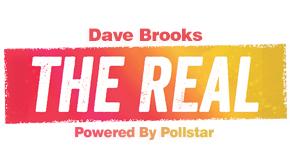Un Mundo Distinto

“It took me 24 years to come here; let’s hope next time doesn’t take that much,” he announced to cheering fans. Gallagher was one more artist to check off the bucket list for Colombian music fans, who’ve been begging the British singer to pay a visit. The cultural exchange was made possible by Estereo Picnic, a growing indie music festival held at Parque 222 on the outskirts of Bogotá.
Promoted by local impresarios T310 and Absent Papa, with support from Live Nation-owned C3 Presents, the three-day event sold approximately 17,000 tickets on Thursday and Friday (March 10-11), and sold out all 25,000 tickets on Saturday (March 12).
The festival’s tagline in 2016 was “Un Mundo Distinto,” or “A Different World,” reflecting the explosive growth of Colombia’s live music scene since 2010.

T310 founder Juan Shool said he remembers when only two major American rock bands came to Colombia in the 1990s – Guns N’ Roses and Metallica. Now bands are pouring into the market, hoping to establish a foothold in North America’s third-largest city, prompting a bidding war to buy American talent.
99 Problems But Demand Ain’t One
Like in the U.S., being an indie promoter in Colombia means getting squeezed by the majors. On the same day Estereo Picnic opened, Latin America’s biggest promoter, Ocesa (based in Mexico), brought the Rolling Stones to Colombia for their first concert in the nation’s history. The band played in front 45,000 people at Estadio El Campín, the main stadium of Bogotá.
“Competition is tough,” but there’s a lot of pent-up demand, Shool explained. “It means the offers are usually a bit higher than what we should be paying the bands, but there’s still plenty of opportunity.”
And plenty of struggles: the combination of the Stones, Estereo Picnic and frequent afternoon thunderstorms turned a 22-mile trip to the festival into a three-hour slog. The thunderstorm turned some festival areas into mud and dug into beer sales, but each day the organizers shook off the water and proceeded without any major glitches.

The first day saw sets by veteran punkers Bad Religion, indie sophomores Of Monsters and Men, rap weirdos Die Antwoord and EDM legend A-track.
Over the course of three days, Odesza, Alabama Shakes, Mumford & Sons, Florence + the Machine, Duke Dumont, Jack Ü, The Flaming Lips and Snoop Dogg all played high-profile sets.
About a third of the revenue at Estereo Picnic comes from 24 sponsors like Doritos, Chevrolet, MillerCoors and Latin American phone company Tigo. At the Axe Tent, fans ran on a giant treadmill shaped like a record, competing with friends in a “DJ Battle,” while others cooled down in a massive ball pit created by gum maker Bubbaloo Sparkies.
Fans with hearing impairments were invited to special sound stages that would shake and vibrate with the music to create a more immersive experience.
There was even a mini-lab set up to test the safety of drugs people had brought to the festival. A small team of lab technicians would advise fans if their MDMA was too strong, and give tips on how to counteract some of the side effects.
Bogotá Rising
Spend a couple minutes with local radio personality Diego Mauricio Bolaños Estrada, and you’ll learn that Colombia’s concert scene is growing but it’s still not reaching its full potential.
There’s not enough small venues to support emerging artists, the Radionica DJ explained, and Bogotá’s cacophony of theater and cinema houses haven’t yet figured out the live music model. Like most oil export nations, Colombia is experiencing a drop in buying power with the Colombian Peso now worth half of its 2014 value against the U.S. dollar.

Still, many in Colombia view the exchange rate as a blip against a decade of solid growth and relative peace. Colombian President Juan Manuel Santos is close to finalizing a comprehensive peace deal with the revolutionary guerilla party FARC.
While the two sides hash out a bilateral ceasefire at a summit in Havana, the effects of the country’s 50-year civil strife are still an inescapable part of daily life. Bogotá is patrolled by a loose network of local and federal law enforcement and military, along with a growing private security industry.
Shoppers must let a bomb-sniffing dog smell the back seat of their car before pulling into a luxury mall’s parking lot. In Bogotá’s hip Chapinero district, newly opened cafes protect themselves with rod iron fences and razor wire, while other small businesses fight a hopeless battle against vandalism and gang graffiti.
Bogotá hasn’t totally shaken its outlaw reputation, but much of the city’s seediness has shifted toward the Sante Fe Red Light District, or “Zona de Tolerencia.”
At night Bogotá is intimidating, but overall safe and bustling with foot traffic. Changes in policing policy have made huge dents in crimes like robbery, assault and kidnapping.

Bogatá has one of the highest murder rates in the Western Hemisphere, but locals point out that many homicides are committed by and against local young men, similar to crime patterns in Brazil, Mexico and the United States.
The drop in crime has run parallel to Bogotá’s rise in the creative industries, with public/private entity Invest in Bogotá taking an active role to promote the city as a musical and cultural hub (full disclosure: Invest in Bogotá paid for my trip).
The city holds 16 percent of the country’s population and quarter of its GDP. Creative industries like live music, film and media have doubled their earning output four times since 2005, now representing 1.7 percent of GDP, the same as Colombia’s coffee production. Besides Estereo Picnic, Bogota is also home to the Rock al Parque, the largest free outdoor music festival in all of Latin America, drawing an average annual attendance of 300,000.
Later this year, Shool is teaming up with C3 to bring Lollapalooza to Colombia, a first for the festival brand after successful runs in Argentina and Chile. Shool said he’s learning more about the American music industry and its peculiarities, like the occasionally strange artist hospitality rider.
“This year we’ve been able to manage most of them,” he said. “But I remember when we had MGMT and their singer wanted Japanese rice cookies in his dressing room. I had to tell his manager ‘we can barely find sake in Colombia, we’re not going to be able to find a Japanese pastry.’”
 Daily Pulse
Subscribe
Daily Pulse
Subscribe

